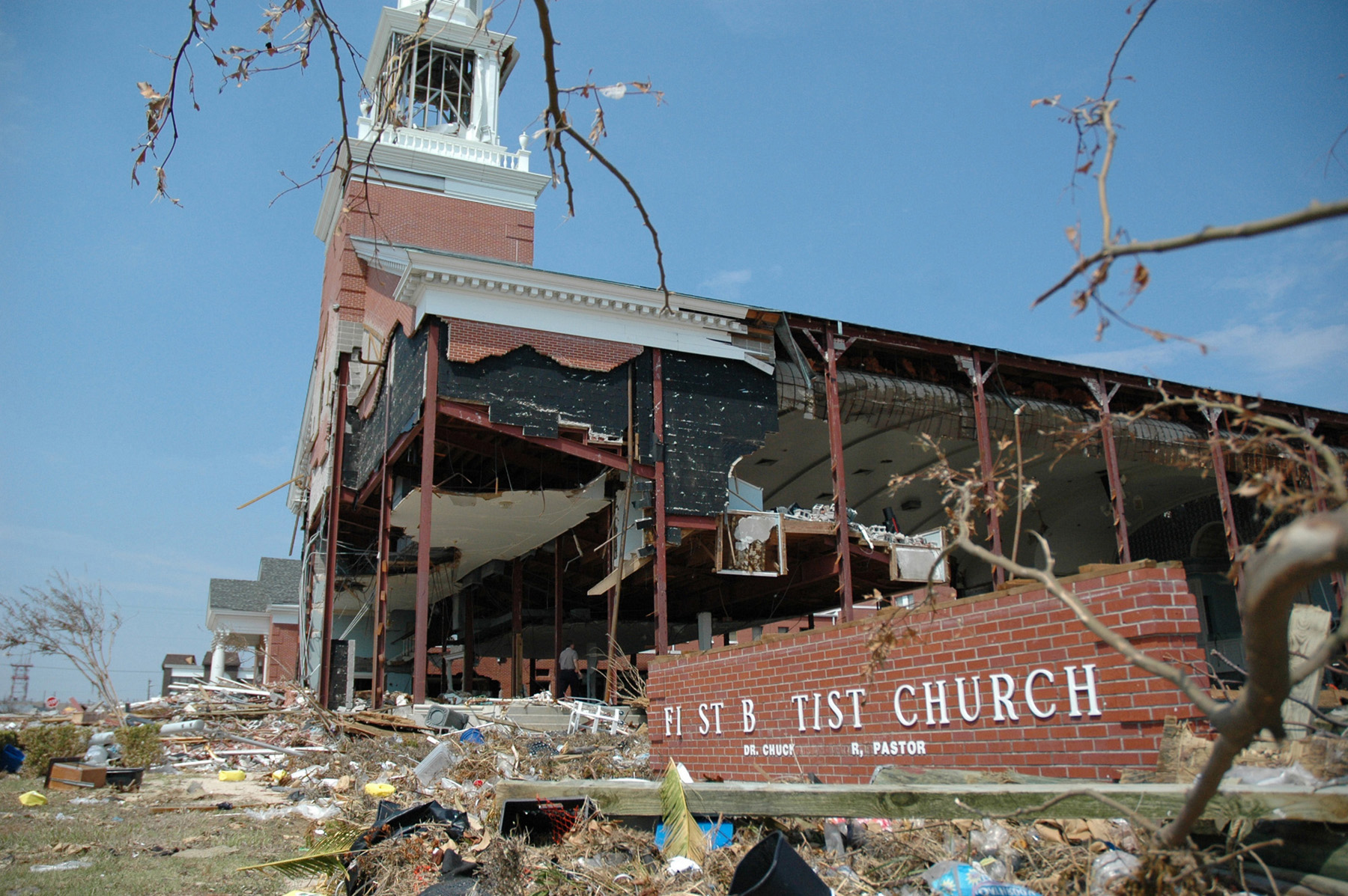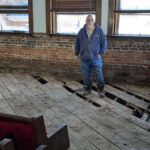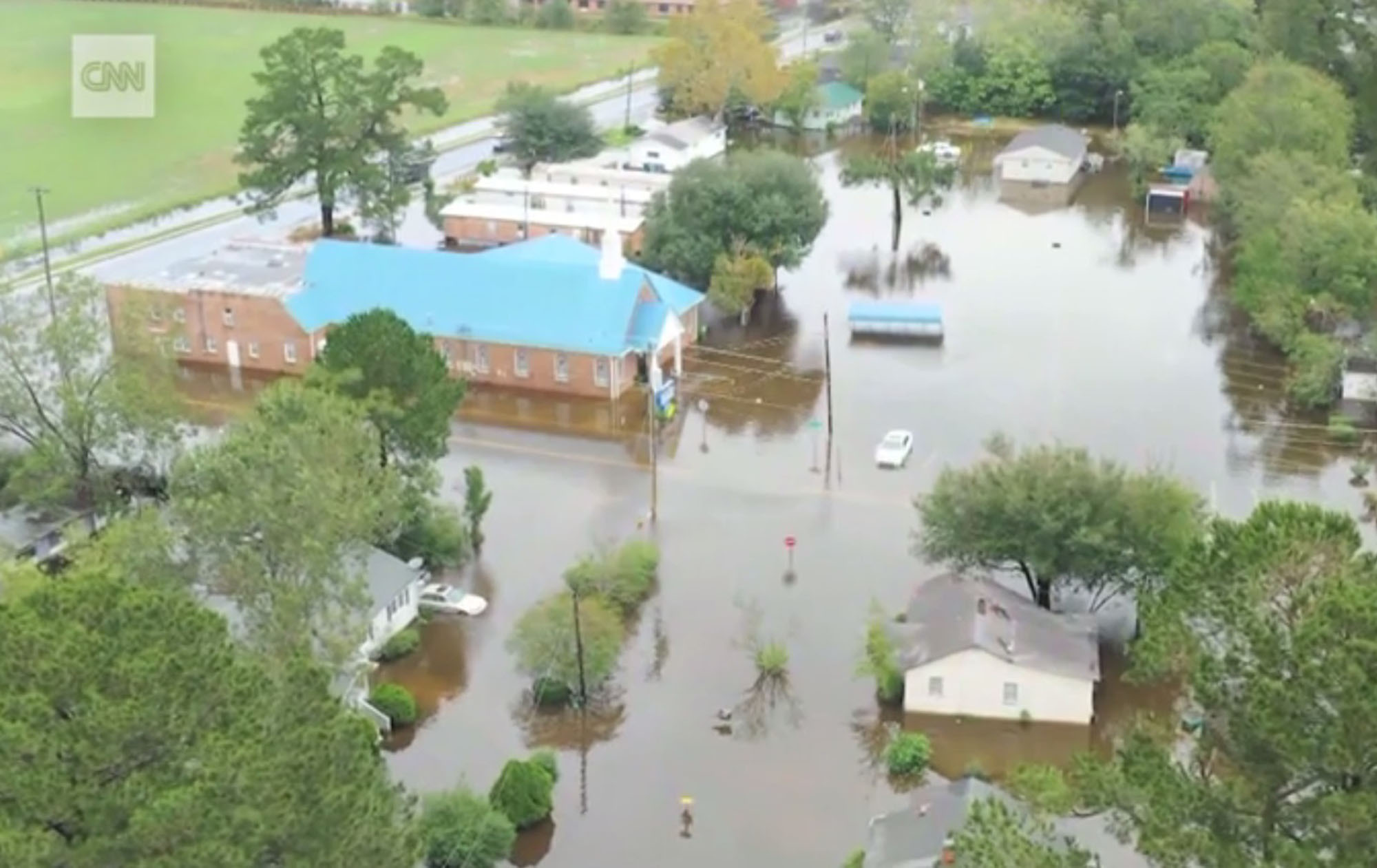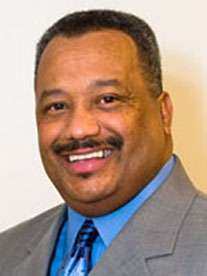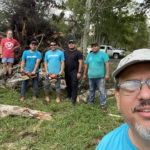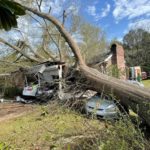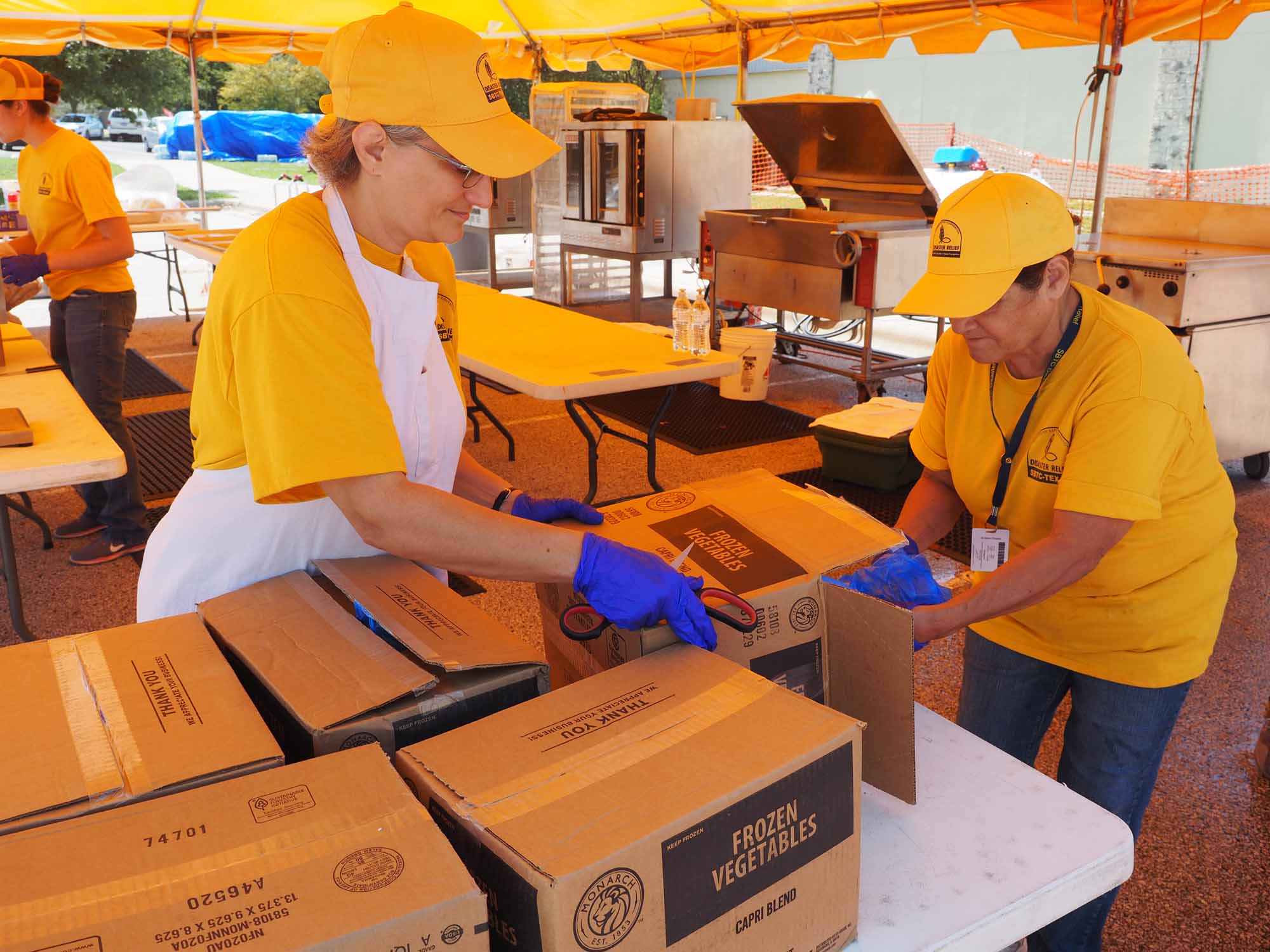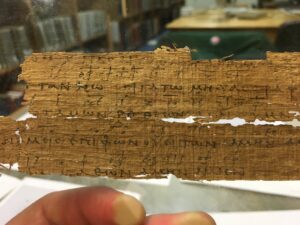
CANTON, N.C. – A team of six skilled tradesmen from Utah on mission in mountainous North Carolina worked eight-plus hours a day for five days last week, tearing out damaged pipes and putting new plumbing in three houses, plus a variety of electrical work on four others.
The weather had turned wintry, with temperatures dropping to the low teens and highs not above freezing the first week of December. The Utah team included two plumbers, licensed so their work could pass inspection.
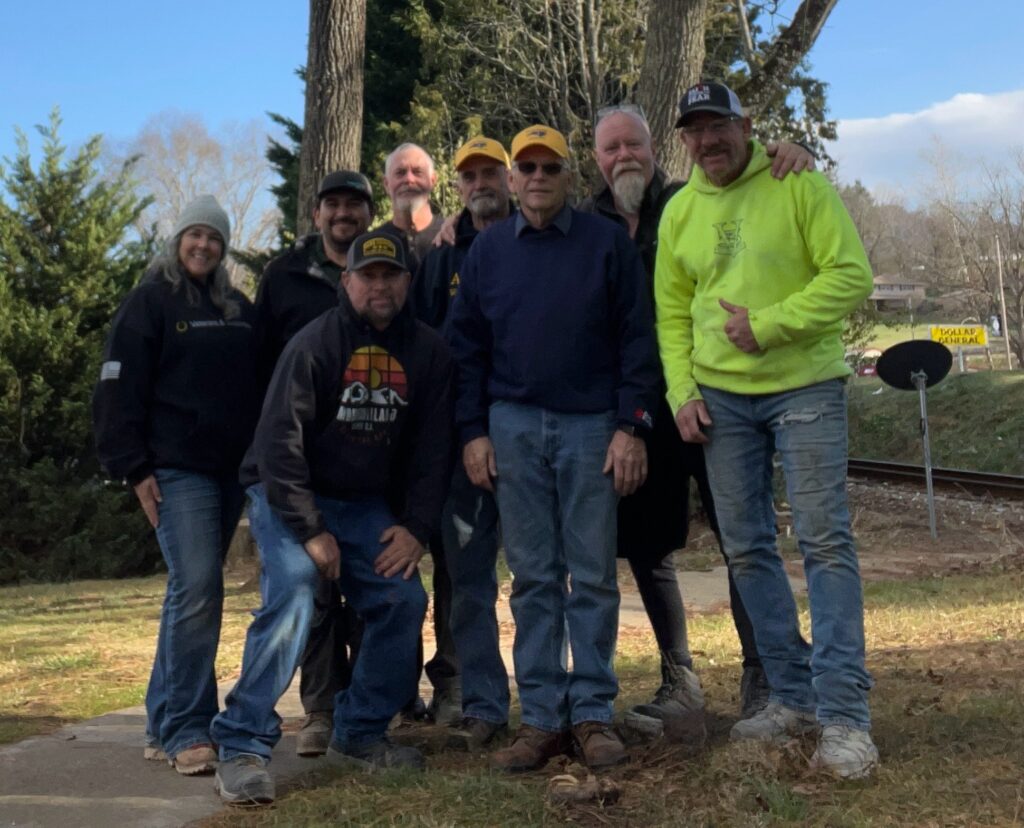
“We have four main houses we’re trying to get the people into by Christmas,” block mason Steve Sidwell told Baptist Press. He was including North Carolina Baptists on Mission (NCBOM) in his “We.”
Sidwell and three others are members at First Baptist Church in Pleasant Grove, Utah, an hour south of Salt Lake City.
“We’re also helping another family getting into an apartment above their garage,” Sidwell continued. “We’re just doing what God’s called us to do.
“You can feel their pain,” the block mason added, referring to devastated residents of flooded homes under renovation. “I think we give them a sense that it will be OK. Us being here tells them, ‘The West is thinking of you. Our hearts hurt for you.’”
The Utah team and about 15 volunteers from North Carolina were part of last week’s transitioning efforts – from Phase 1’s “Recovery” to Phase 2’s “Essential Rapid Repairs” – at the North Carolina Baptists on Mission’s Canton Rebuild site.

To start at the beginning, Hurricane Helene arrived in western North Carolina on Sept. 27. By Oct. 2, NCBOM had set up nine disaster response sites. That number grew to 17.
“Through our recovery operation and mass feeding, we utilized 11,000 volunteers through Dec. 1,” Tom Beam told Baptist Press. He’s NC’BOM’s disaster response director. “Individuals averaged three to five days per person of service, and together that totaled 400,000 hours.”
Recovery included mucking out houses of whatever floodwaters deposited or destroyed; cutting down trees and clearing land; tearing out walls to the bare studs, spraying to stop mold, and tarping roofs to keep out adverse weather.
Today, in many places in western North Carolina, massive piles of debris have been neatly gathered on vacant land. The rivers and creeks are back within their banks. NCBOM Rebuild sites have made provision for volunteers to stay for a week or more, with skilled tradesmen especially needed at this time.
Sheets caught up in trees’ tall branches are one indication remaining of how high the Pigeon River reached in the Canton area, about 20 miles southwest of Asheville, N.C.
Sidwell, who has worked in construction for 40 years, said he was struck first by the height of the water during the flooding, and then, “How much damage is done to each home. Where we’re working right now, one side of the foundation is completely knocked over. Did trees hit the foundation or was it the strength of the water, and what were the people thinking as this all happened?”
With the move from Recovery to Essential Rapid Repairs, the number of worksites in North Carolina has been trimmed to eight.
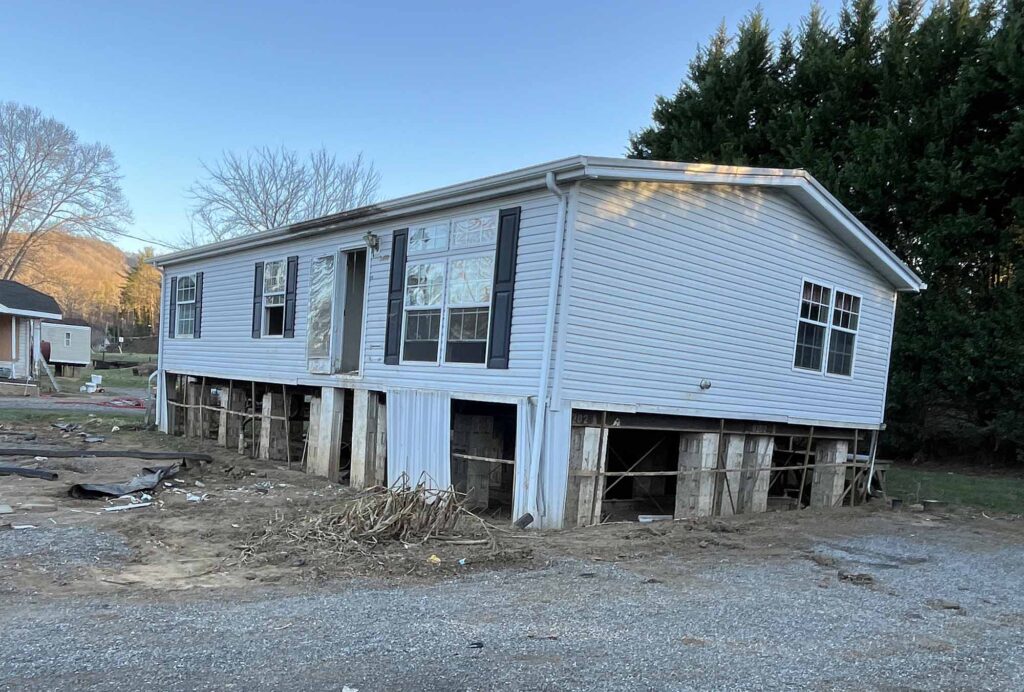
“Some sites still actively do Recovery, but all sites are transitioning to Repairs,” Canton Rebuild Site Coordinator Michael Maragelis told Baptist Press. “Four of the eight sites are still officially Recovery, but all eight should begin Repairs next week.”
Essential Rapid Repairs consists first of plumbing and electricity, which requires approval by city or county inspectors so it must be done by licensed tradesmen before being covered up by walls and flooring.
Mike Brooks, who owns a commercial plumbing business in Salt Lake City, brought one of his employees, Raul Lopez.
“All the plumbing was mostly destroyed so we had to redo everything,” Brooks said. “It’s very time-consuming: pulling out all the old stuff and laying new water and sewer drains.”
Plumbing work is wet work in miserable wintry conditions, though Brooks didn’t complain. He had come to North Carolina, he said, out of appreciation for the North Carolinians he had met in Houston, Texas, doing recovery in 2008 after Hurricane Ike.
“I told myself one day I’m going to go to North Carolina and help them,” Brooks said. “The Holy Spirit said this is the time to go.
“It’s always good to work alongside my Christian brothers and sisters. Developing relationships with the homeowners is basically our priority: the sharing of Jesus Christ and doing the work God provides.”
Once electricity and plumbing are approved by county inspectors, Essential Rapid Repairs (ERR) volunteers lay a wood subfloor, hang drywall, install a refrigerator, stove, sink and cabinets, complete the bathroom and hang bedroom doors.
North Carolina Baptists on Mission plans recovery for about 1,000 homes. Once all the houses are livable, NCBOM will be back to finish the work – Phase 3’s “Rebuild” – by painting interior walls and laying the final flooring.
The entire project is expected to take three to four years, Beam said.
“Every day that we have volunteers here is a day closer to getting homeowners back in their home,” Maragelis said.
The Utah team originally planned to help in North Carolina in October but scheduling challenges intervened.
“When we arrived Nov. 30 it was freezing cold temperatures,” Steve’s wife Chauna Sidwell said. “The [Disaster Relief] showers froze and broke. If we weren’t here they wouldn’t have had showers. But we had two plumbers!
“That made us feel that God wanted us here at this time,” she continued. “It was God’s timing,” her husband added.
The Utah team, familiar with but not licensed to do electrical, handled their work under the supervision of the onsite North Carolina licensed electricians. With the experienced Utah team onsite, one licensed electrician who was ill was able to leave.
“We prayed for him,” Chauna Sidwell said. “And we thanked God He brought us here this specific week.”
“I wish we could stay longer,” said construction worker Justin Nielson. “There’s so much work to be done.”
In Canton, the Crestview Baptist Church distribution site offered its 5-acre property to share with NCBOM, which put up a bunkhouse where 26 men can sleep inside a 20-foot storage container; women sleep in the church. There’s the Disaster Relief shower/laundry trailer, a tool shed, meals prepared for volunteers, plus evening devotions and fellowship.
“One of the best things is knowing there are many people from all over the United States willing to serve in short term U.S. missions,” Chauna Sidwell said. “It’s encouraging to meet other like-minded people and to be able to listen to others and share stories with others.”


